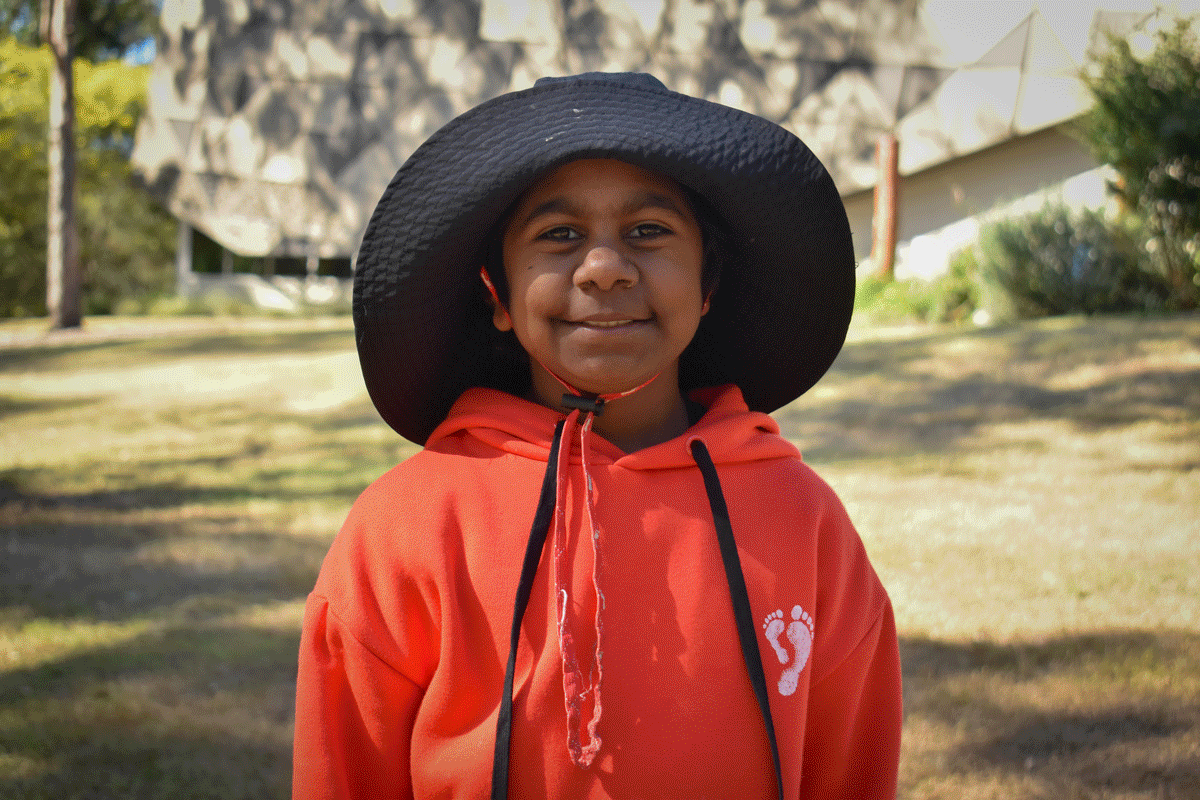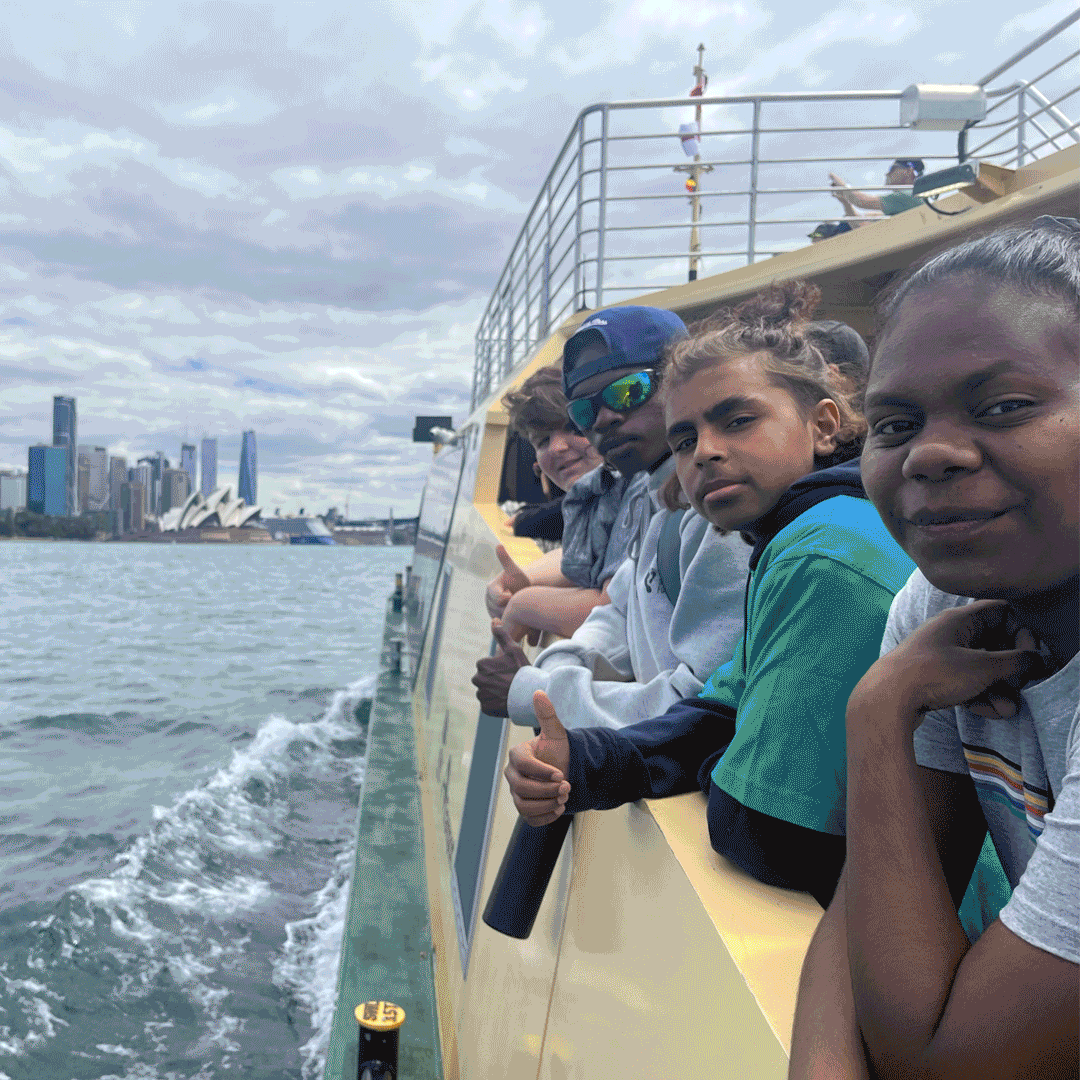News from Community Spirit Foundation

In the months leading up to our 30 June transition to our new name, I spent a lot of time reflecting on what ‘community spirit’ is and how it inspires and directs our work.
We strive to deliver place-based programs that support First Nations young people to reach their potential through life-long learning. In order to do this, we must understand the specific context of each place and acknowledge and honour the rich and diverse history.
Late last month, Program Director Rachel Elphick and I travelled to the Northern Territory to visit our partner communities at Galiwin’ku and Wurrumiyanga. We spent time with our community-based staff – the heart and soul of our organisation. We saw first-hand the special connections our teams have with the students they support, the schools we partner with and the communities they’re part of. We also enjoyed some spectacular sunsets.
After more than two years of not being able to travel to our partner communities, I was proud and honoured to see the impact of our programs, and feel and see the community spirit of our teams, and in the places we're lucky enough to work in.
I thank you for continuing to share our journey with us, and hope you enjoy reading about our work.
Jade Colgan
CEO, Community Spirit Foundation

Photo: CEO Jade Colgan (right) with Galiwin'ku Programs Coordinator Naomi Roe (centre) and Programs Officer Natasha Gurruwiwi (left).
Horizons camps
After two years of disruptions, we’re thrilled to have been able to lead a cohort of young people from our partner communities on several Horizons Camps in the past few months.

Superheroes fly into Brisbane
Year 5 and 6 students from Woorabinda and Palm Island travelled to Brisbane, where they operated robots and explored a biomechanics lab at the Australian Catholic University; viewed the city from atop the Brisbane Eye; met NRL legend Petero Civoniceva in a Deadly Choices workshop; toured Queensland Museum with Deadly Science’s Kamilaroi man Corey Tutt; and tested their balance (and resilience) on a ropes course.
Students took part in an art workshop with Yuwu, Torres Strait, and South Sea Islander man and renowned artist Dylan Mooney, where they created a First Nations superhero and reflected on their own superpowers.
Nathaniel (Year 6) said the superheroes of his life were close to home.
“The word superhero means a savour and being resilient about what she or he is doing about saving people and representing culture. A superhero is someone that people can trust.
“My superheroes are my family because they help people and others, especially me, by being brave and helping me be brave.”
Deadly Darwin
Year 5 and 6 students from Wurrumiyanga and Galiwin’ku travelled to Darwin. Over an action-packed few days, the students scaled ropes courses; swam; cruised a wetland area where they learned about crocodiles; explored Litchfield National Park; weaved baskets; visited the Museum and Art Gallery of the Northern Territory; and learned about Top End animals from a wildlife carer.
A highlight for a number of the young people was making new friends from a different community.
“My friends make me feel at home,” said Alynah (Year 6).
Having the opportunity to meet First Nations young people from other communities is a key element of the Horizons camp experience. It enables students to share with strength, about their culture and community with others.
Taking Horizons to Community
When students from our partner communities couldn’t travel for Horizons Camps due to COVID restrictions, we took the camps to them. And these local camps were so successful we’ve made them a permanent part of our program.
Community Spirit Foundation staff facilitated a local camp in Woorabinda for Wadja Wadja High School students. The young people spent time on Country where they heard about science and conservation. They also spent time with Community Elders and took part in a workshop led by ETM Perspectives, which was designed to build confidence and encourage them to set goals and plan for their future.
The Horizons program focuses on personal development and supports students to plan for their future and think about life after school.
Putting First Nations young people in the driver’s seat of their future
Have you ever misplaced your wallet and panicked, imagining the hassle of having to replace your ID?
What if you never had the ID to begin with? How would you apply for your driver’s licence that requires 100 points of identification; get a passport to travel; or satisfy the checks necessary for working with children or on a construction site?
Twelve months ago, more than half of the 15 to 18-year-old students participating in the Sprints Passport Program didn’t have basic identification documents. Since then, the Community Spirit Foundation team has supported 15 students to obtain a Unique Student Identifier and 20 others to gain access to birth certificates, Medicare and 15+ identification cards, as well as other tools such as tax file numbers and bank accounts.
The Sprints Passport Program, run by Community Spirit Foundation in partnership with UNICEF Australia, also provides young people in Woorabinda with access to short courses and micro-credentials that will help them transition from school to the world of work.
Year 12 student Gerald said: “I remember one of the Program Coordinators taking me to Transport Main Roads and they turned us away six times because I didn’t have enough identification points. But she wouldn’t give up. I told her many times, ‘It’s a waste of time’, but she never listened. It took me three weeks to get all the right identification so I could get my licence. If it wasn’t for the Sprints Passport Program, I wouldn’t have the skills I have”.
Year 12 student Dakota (featured above) is one of the young people taking part in the driver training program.
Senior Program Coordinator Khanita Sukaserm said being able to drive opened the world to Dakota and her peers, who live 170 kilometres south-west of Rockhampton.
“We live two hours’ drive from most towns, so they need to gain a licence for independence,” Khanita said.
“It will also help with their employment and look good on their resume.”
Learn more about Sprints Passport Program.
Meet the team behind Community Spirit Foundation
Benjamin Castors – Program Officer (Palm Island) – is a Kuku Yalanji/Yidinji/Erub man. He has experience working with young children and finds joy in watching them develop the skills that they need throughout life. His hobbies include playing netball and spending time with his family and friends.


"My name is Shaleah Wyles and I am from the Palm Island Community.
"I’m a stay-at-home mother of two children, one of which, Shaneqa, is enrolled in Kindergarten at Bwgcolman Community School. I’m involved with the Community Spirit Foundation through Shaneqa, as she receives Attendance Awards from her grade. I understand how important education is to children as well as their attendance to make sure that they get the most out of it.
"At the end of the school term, when Shaneqa receives her Attendance Award, it makes me proud because it shows my commitment in making sure that she is getting the most out of her education.
"I feel that the Community Spirit Foundation provides the support to Shaneqa by making sure she’s able to recognise and be proud of her achievements every term. I know that she enjoys her Attendance Award and prizes because it shows through her excitement when she comes home. Before, I only thought that the Foundation handed out awards and prizes, but I now understand there’s more to it and I enjoy and appreciate the work the Foundation does.”
Shaleah Wyles








